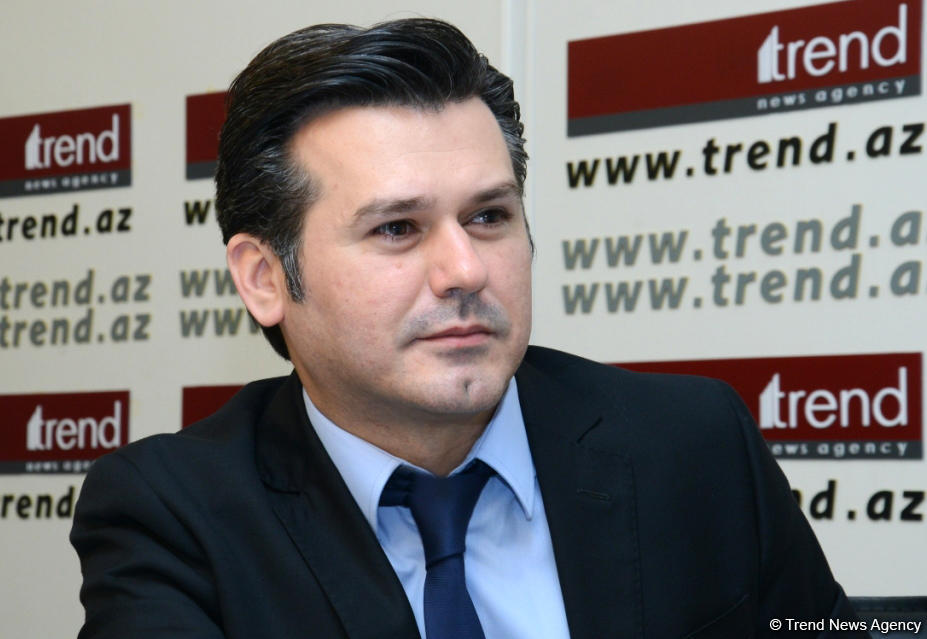Baku, Azerbaijan, Dec. 25
By Rufiz Hafizoglu - Trend:
The creation of new "states" in the territory of Arab countries is a long-standing plan of a number of Western countries that are guided by the ancient "divide and rule" principle.
One of these "states", planned to be created in the territory of Iraq, is the so-called independent "Kurdistan".
Many attempts were made to create an independent “Kurdistan”. Moreover, a “referendum” was held on Sept. 25, 2017 in the Kurdish autonomy in Iraq, the results of which were not recognized by the world. The main reason for not recognizing the outcome of the “referendum” in Erbil was related to instability in Iraq and Syria.
Afterwards, under the pretext of fighting the terrorists of the "Islamic State" (IS) group, the US began to actively support PYD/YPG, the Syrian wing of the Kurdistan Workers' Party (PKK).
As is known, on Dec. 12, Turkish President Recep Tayyip Erdogan said that the Turkish Armed Forces would launch a new military operation in northern Syria against PYD/YPG. After this statement on Dec. 19, US President Donald Trump declared victory over the IS in Syria.
Turkish authorities have repeatedly stated that the Syrian policy of Washington is doomed to failure, but the fact is that the US plans are not limited to Syria.
According to the Iraqi TV channel Alhurra, the US will soon withdraw 2,130 servicemen from Syria and send them to Erbil.
Amid the US-Turkish controversy over Syria and the US support for PYD/YPG, Erbil is actively receiving senior political figures from different Western countries.
For example, on Dec. 17, Foreign Minister of the Netherlands Stef Blok arrived in Erbil, the administrative center of the Kurdish autonomy in Iraq.
Blok, who was accompanied by Ambassador of the Netherlands to Iraq Matthijs Wolters and a group of investors and entrepreneurs, was welcomed by interior minister of the Kurdish autonomy Karim Sinjari and Head of the Department of Foreign Relations Falah Mustafa Bakir.
In turn, on Dec. 11, US Secretary of Energy Rick Perry arrived in Erbil to discuss energy issues with local authorities.
Among the countries actively developing economic relations with the Kurdish autonomy in Iraq are China and India. In fact, according to Iraq’s legislation, Kurdish autonomy is entitled to develop relations with other countries. But a question arises: why does all this happen amid the withdrawal of the US troops from Syria?
Obviously, all the recent events testify that the issue of independence of “Kurdistan” will sooner or later be put on the agenda. But first of all, the economic crisis in the autonomy should be overcome.
In turn, the conflict in Syria - the problem with PYD/YPG - should be resolved and Turkey is actively dealing with that.
The elimination of PYD/YPG is vital for Turkey, but one should remember that before the "referendum", Erbil was one of Ankara's important allies.
By urging Erbil to hold a "referendum" of independence, the US deprived Turkey of one of its main allies in the region.
But this does not mean that Ankara is not aware of the expected events.
It is unknown how long it will take to clear the Syrian northern regions of PYD/YPG, and at the same time, what efforts will be required for the economic development of Kurdish autonomy in Iraq.
Perhaps taking all this into account, Ankara will continue to do everything necessary to return Erbil to its sphere of influence as Ankara is well aware that the issue of independence of the Kurdish autonomy in Iraq will again be put on the agenda after the settlement of the conflict in Syria.
---
Rufiz Hafizoglu, deputy editor-in-chief of Trend
Follow the author on Twitter: @rhafizoglu






